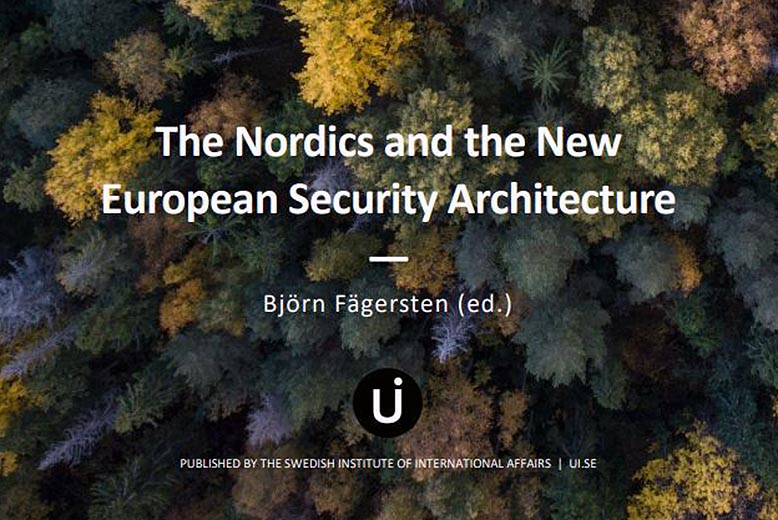
New Report: The Nordics and the New European Security Architecture
This report investigates the increasingly dense European security architecture. It offers an overview of formats for cooperation and analyses what role they play for the Nordic countries. The report includes country-specific contributions from national experts on how Norway, Sweden, Finland and Denmark are navigating and positioning themselves within the new architecture.
There has been a rapid development of forums and mechanisms for security cooperation in Europe in recent years. Novelties such as Permanent Structured Cooperation (PESCO), the European Defence Fund (EDF), the Joint Expeditionary Forces (JEF), Framework Nation Concept (FNC) and the European Intervention Initiative (EI2) have been added to a field already dense with acronyms. This study summarizes recent developments in European security cooperation, analyses the added value of the new structures and discusses what these might mean for Nordic security and the Nordic states.
From a Nordic perspective, it is striking that Norway, Sweden, Denmark and Finland – which differ considerably on European Union (EU) and NATO membership, as well as on EU defence policy and euro participation – have all adopted fairly similar positions on Europe’s new security formats. From different positions, and with somewhat different arguments, all of these states are trying to reap the benefits of the new EU structures and have joined “mini-lateral“ groupings focused around big players such as France, Germany and the United Kingdom.
This alignment of institutional choices should not, however, be interpreted as a surge of “Nordism” – the Nordic states as a political force. On the contrary, the report illustrates how Nordic cooperation and cohesion are formed within specific frameworks, such as bilateral links and Nordic Defence Cooperation (NORDEFCO), but rarely leave these formats. Joint Nordic positions and interests are thus rarely leveraged in wider European platforms for security cooperation.
Regarding cooperation formats with one dominant leader – such as France’s EI2, the UK’s JEF and Germany’s FNC – the Nordic states to a large extent seem to be driven by national ambitions to build strong bilateral relations with Europe’s larger powers, while the other cooperative benefits of these frameworks are secondary.
One perceived benefit of all the Nordic states participating in the new platforms for cooperation is the increased levels of interoperability and enhanced habits of cooperation. Regardless of whether cooperation platforms add value to crisis management, deterrence or defence, there is a clear added value in increased levels of cooperation with the actors are already present in your geographical neighbourhood in a time of crisis.
Sections authored by Björn Fägersten, Calle Håkansson, Gunilla Herolf, Karsten Friis, Maren Garberg Bredesen, Matti Pesu, Mikkel Runge Olesen
Download The Nordics and the New European Security Architecture